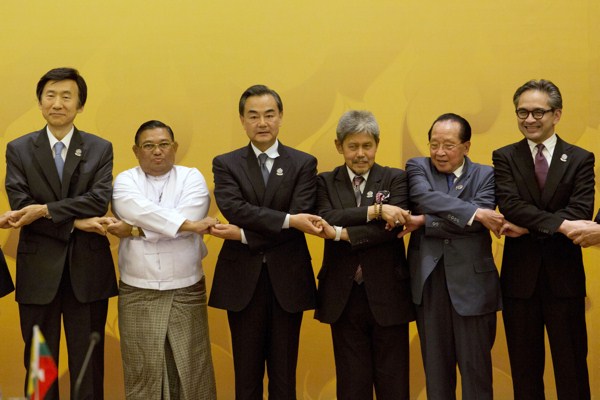Last month, amid the latest round of Asian regional summits in Myanmar, the United States called for a freeze in provocative acts in disputed areas in the South China Sea. While the move signaled Washington’s willingness to counter China’s growing maritime assertiveness, U.S. policy faces several structural challenges that could undermine the effectiveness of easing tensions in the South China Sea.
As U.S. Secretary of State John Kerry put it at the ASEAN Regional Forum in Naypyitaw on Aug. 9, the freeze’s main objective is to manage competing territorial claims in the South China Sea by encouraging the six claimant states—Brunei, China, Malaysia, the Philippines, Taiwan and Vietnam—to resolve their disputes “peacefully” and “on the basis of international law.” Although the freeze applies to all actors, the Obama administration is especially concerned about China’s provocations in the South China Sea since Beijing submitted its so-called nine-dotted line map to the United Nations in 2009, laying claim to almost the entire sea. In the first half of 2014 alone, Beijing has parked an oil rig in waters claimed by Vietnam, harassed Philippine vessels and encroached on Malaysian waters.
In response, the Obama administration has sharpened its tone over the past few months. Even as U.S. officials maintain that Washington does not take a position on competing territorial claims, they have publicly questioned the legality of China’s nine-dotted line, warned Beijing against declaring an Air Defense Identification Zone in the South China Sea and firmly insisted that the U.S. has important interests in ensuring the freedom of navigation and the peaceful resolution of disputes to ensure stability and prosperity in the Asia-Pacific. The U.S. freeze is another step in this direction. U.S. officials had previously called for ASEAN members and China to work on a long-delayed code of conduct in the South China Sea. As Kerry warned the ASEAN forum, waiting for that is “not enough” and claimants “need to take steps now to lower the temperature.”

